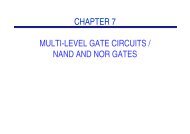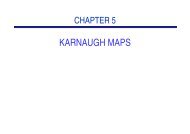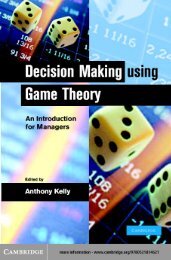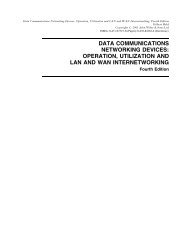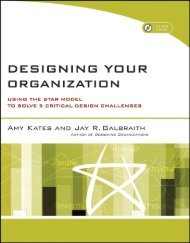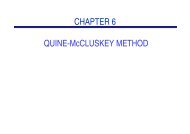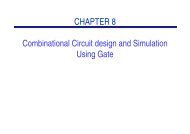The Economist December 1st 2007 - Online Public Access Catalog
The Economist December 1st 2007 - Online Public Access Catalog
The Economist December 1st 2007 - Online Public Access Catalog
- No tags were found...
Create successful ePaper yourself
Turn your PDF publications into a flip-book with our unique Google optimized e-Paper software.
Japan's marketsWhy us?Nov 29th <strong>2007</strong> | TOKYOFrom <strong>The</strong> <strong>Economist</strong> print editionThough scarcely implicated in the credit crunch, Japan gets it on the chinGet article backgroundON THE far side of the world from credit-market turmoil, it all seems so unfair. Stockmarkets in America,Europe and Japan all lost their nerve in the summer, but in dollar terms, Japan has fared much worserecently (see chart). In local currency, Tokyo's Nikkei 225 is down by 10.6% since January. Until a sharprally on November 29th, it was in bear-market territory (defined as a fall of 20% from its high), a distinctionit shared only with Sri Lanka, which has a civil war as an excuse.Why the long faces? After all, the country's direct subprime exposure is tiny. Official estimates put the banks'combined subprime losses for this financial year at ¥600 billion ($5.5 billion), which they can easily copewith. And even a housing-led slowdown in America may not take a heavy toll on the economy. <strong>Economist</strong>s atDeutsche Bank argue that though exports to America slowed this year, Europe and China have more thantaken up the slack. If property markets there were to fall, however, Japan would really suffer. On thestrength of rising property prices, Chinese and Europeans have splashed out on Japanese cars and the like.Perhaps the malaise reflects home-grown concerns. Japan's recovery since early 2002, driven by exports andbusiness investment, has been unusually steady, with GDP growth of about 2% a year. Now, though, theeconomy looks softer and there are only tentative signs of the long-awaited pick-up in consumption.This is partly because the government is quick to whip out a pile-driver whenever it perceives a policy problem. A clampdown on predatory lendingearlier this year has hit consumer spending and created large losses at consumer-finance houses. A new building-standards law, hurriedly passedthis summer in response to an earthquake-proofing scandal, has overwhelmed the government inspectors who approve new construction. Newbuilding has tumbled by two-fifths compared with a year ago—not even the subprime drama has had that effect yet on America's economy. Lastly,loose talk by the ruling Liberal Democratic Party about doubling the consumption (sales) tax, to 10%, has not helped fragile sentiment, howevernecessary it may eventually be to pay for Japan's pensions burden.It is possible to overdo the gloom. Wages are falling partly because a cohort of highly paid baby-boomers is retiring, replaced by younger workers.<strong>The</strong> recovery is pulling people back into a more flexible labour market. As a result, the total amount households have to spend is inching up.Consumption has improved since August, though not enough to convince the Bank of Japan (BoJ), which has put its planned interest-rate rises onhold.<strong>The</strong> stockmarket, down three-fifths from its all-time high in 1989, looks cheap by almost any measure. This week a Dubai investment fund said ithad taken a big stake in Sony, Japan's biggest electronics firm. Rumours that China's sovereign-wealth fund was keen on the Tokyo stockmarketprovided momentary elation, too.But the spreading international credit crunch still has the power to deal Japan fresh blows. Foreign hedge funds and the like have been unwindinghuge positions in the yen carry trade, where they borrowed cheap yen in order to invest in high-yielding currencies. A rise in the yen—from ¥120last summer to above ¥108—has all but killed the trade, when measured by open positions in the Chicago futures markets. If the yen climbs muchhigher, Japanese exporters will squeal. Might the BoJ even be forced to reverse its interest-rate rises? <strong>The</strong> strangest things appear to happen onJapan's long road to recovery.Copyright © <strong>2007</strong> <strong>The</strong> <strong>Economist</strong> Newspaper and <strong>The</strong> <strong>Economist</strong> Group. All rights reserved.



